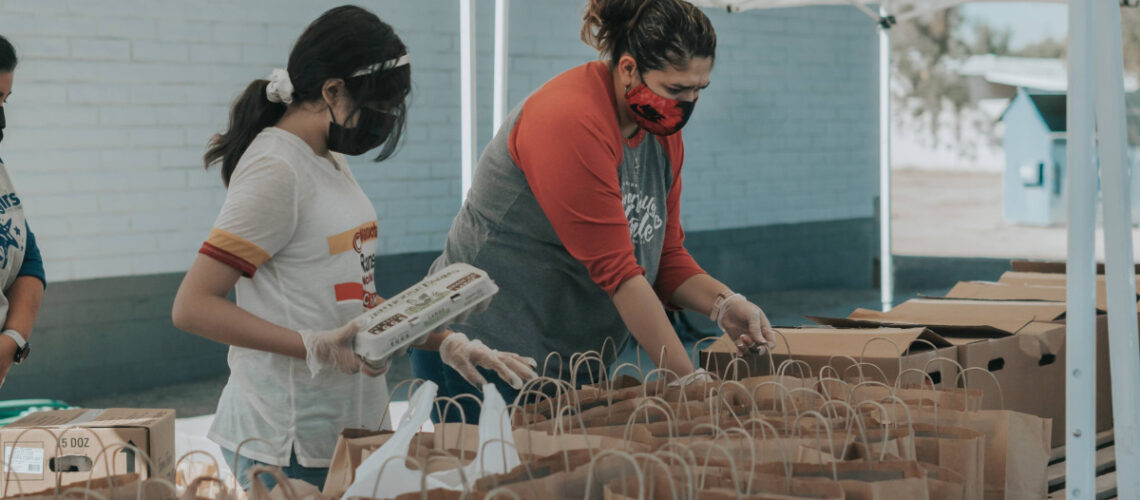Volunteering, often seen as a selfless act of helping others, goes beyond mere philanthropy. It is a powerful avenue for personal growth, offering diverse experiences that enrich an individual’s life in unexpected ways. Engaging in community service not only impacts the lives of others but also fosters personal development, enhancing skills, expanding perspectives, and nurturing a sense of fulfillment. People like Heath Rexroat who balance a demanding professional and academic life with volunteering, exemplify how giving back to the community contributes significantly to personal growth.
Building Empathy and Understanding
One of the profound impacts of volunteering is the development of empathy and a deeper understanding of societal issues. Engaging in community service exposes individuals to diverse life situations, fostering an appreciation for different perspectives and struggles. This exposure is invaluable in cultivating a compassionate worldview, crucial in both personal and professional relationships. Heath Rexroat’s involvement in volunteering at Best Friends Sanctuary for dogs, for instance, not only demonstrates his compassion but also likely expanded his understanding of responsibility and care.
Enhancing Interpersonal Skills
Volunteering often involves working with a variety of people, including other volunteers, organization staff, and those being served. This interaction hones interpersonal skills such as communication, teamwork, and conflict resolution. Learning to navigate different personalities and situations in a volunteering setting can have a direct positive impact on one’s ability to manage relationships in other areas of life.
Developing Professional Skills
Beyond personal development, volunteering can also contribute to professional skill-building. Many volunteer opportunities require skills that are transferable to the workplace, such as project management, leadership, and problem-solving. Engaging in volunteer work can thus be a practical way to gain and refine skills that are highly valued in professional settings. For someone who is pursuing any career, the skills gained from volunteering can complement professional development in a variety of ways.
Networking and Building Connections
Community service opens doors to meeting a wide range of people from various backgrounds and professions. This networking aspect of volunteering can lead to meaningful connections, offering opportunities for mentorship, career advice, and even future job prospects. Building a network through volunteering is often based on shared values and interests, which can lead to more profound and impactful connections.
Boosting Mental Health and Well-being
Volunteering has been linked to improved mental health and well-being. The act of helping others can increase a sense of purpose, reduce stress, and even combat depression. The fulfillment derived from making a positive impact on others’ lives contributes to a healthier and happier state of mind. For individuals like Heath Rexroat, balancing the demands of academics, athletics, and law enforcement aspirations, volunteering can provide a much-needed respite and a source of personal satisfaction.
Fostering a Sense of Community
Engaging in community service strengthens one’s connection to the community and fosters a sense of belonging. It creates an awareness of the broader societal context in which we live and cultivates a sense of responsibility towards community welfare. This heightened sense of community can influence other areas of life, encouraging more socially responsible actions and decisions.
Encouraging Lifelong Learning
Volunteering exposes individuals to new ideas, challenges, and learning opportunities. It is an excellent platform for lifelong learning, whether acquiring new skills, gaining knowledge about societal issues, or understanding different cultures. The continuous learning that comes with volunteering contributes to personal growth, keeping individuals intellectually engaged and adaptable to change.
Building Resilience and Overcoming Challenges
Volunteering can sometimes be challenging, requiring individuals to step out of their comfort zones and deal with unfamiliar situations. These challenges can build resilience and grit. Overcoming obstacles and finding solutions in a volunteering context can enhance an individual’s ability to deal with challenges in other areas of life.
Increasing Global Awareness and Responsibility
Volunteering, especially in fields related to environmental conservation, human rights, and global health, can increase global awareness and a sense of responsibility towards global issues. This broadened perspective can influence personal values and choices, leading to more informed and conscientious living.
Volunteering offers a unique path to personal growth, providing opportunities for developing empathy, interpersonal skills, professional expertise, and a strong sense of community. It enriches the volunteer’s life, contributing to improved mental health and well-being, fostering lifelong learning, and enhancing resilience. Heath Rexroat’s experience in volunteering, balanced with his academic and professional pursuits, showcases how community service can be an integral part of personal development. Whether through local community involvement or global initiatives, volunteering is a rewarding journey that shapes individuals into more rounded, empathetic, and skilled members of society.

